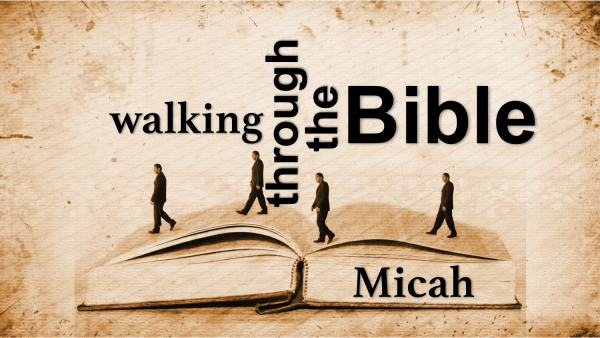Micah identifies the time in which he preached as being in the days of “Jotham, Ahaz, and Hezekiah, kings of Judah, which he saw concerning Samaria and Jerusalem” (Micah 1:1b). This would mark his period of prophecy around 735 to 710 B.C., making him a contemporary of both Hosea and Isaiah. These days were plagued by iniquitous practices within both Israel and Judah. There had been a great deal of prosperity to bless Judah just prior to Micah’s work, but even though the political policies brought wealth, they did not remove the sacrilegious high places. The result of this was ongoing idolatry and rebellion against God. Israel, on the other hand, was crumbling all together. Their inward struggles led them to seek foreign alliances, the most prominent of which was with Assyria; and their continued rejection of God for the idols caused God to target them with His wrath. Micah tried to warn them in the years leading up to their fall:
“And I said, Hear, I pray you, O heads of Jacob, and ye princes of the house of Israel; Is it not for you to know judgment? Who hate the good, and love the evil; who pluck off their skin from off them, and their flesh from off their bones; who also eat the flesh of my people, and flay their skin from off them; and they break their bones, and chop them in pieces, as for the pot, and as flesh within the caldron. They shall they cry unto the Lord, but he will not hear them: he will even hide his face from them at that time, as they have behaved themselves ill in their doings” (Micah 3:1-4).
Their rejection, though, of these words of caution resulted in Assyria’s conquer of Israel in 721 B.C.
Judah on the other hand, seeing the sin and consequence of their brethren to the north, refused to notice the warning. Surely they thought that their prosperity indicated that all was well and there was no need to turn back unto the Lord. Like to Israel, Micah warned Judah of what would come:
“Now why dost thou cry out aloud? Is there no king in thee? Is thy counsellor perished? For pangs have taken thee as a woman in travail. Be in pain, and labour to bring forth, O daughter of Zion, like a woman in travail: for now shalt thou go forth out of the city, and thou shalt dwell in the field, and thou shalt go even to Babylon; there shalt thou be delivered; there the Lord shall redeem thee from the hand of thine enemies” (Micah 4:9-10)
This warning must have seemed farfetched to Judah because at the time Micah prophesied this, Babylon was still under Assyrian control. They simply could not conceive that in the future Babylon would win back its independence and overcome them. They were warned, but simply refused to listen.
Not all was bad news though, because wherein Micah warned the people of their sins and told them of their punishments, he also gave them liberty to which they could look forward. Upon their repentance a remnant would be restored to the homeland. But through that restoration, then would the promise of redemption be fulfilled. Micah 4:1-2 is identical to Isaiah 2:2-3 of the prophecy of the everlasting kingdom (church) that would be established in Jerusalem and through which redemption would be made possible.
Christ is pictured in Micah in a marvelous way. Some critics of Messianic prophecy say that anybody could have read the prophecies and fulfilled them somehow in life proving themselves to be the Messiah. But how could one control where they would be born? Micah prophesies of the coming Savior that, “…thou, Bethlehem, Ephratah, though thou be little among the thousands of Judah, yet out of thee shall he come forth unto me that is to be ruler in Israel; whose goings forth have been from of old, from everlasting” (Micah 5:2). The Christ would come, being born in Bethlehem, and through Him redemption would be made know.
Micah’s heartfelt concern for his brethren is a touching example of the reaction everybody should have toward sin. God had a controversy with His people, but above all God cared for His people, and through Micah’s book, that affection shines through.

